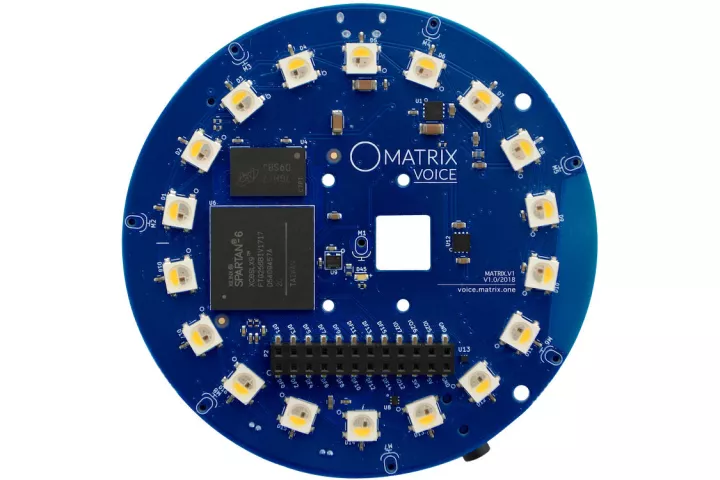Voice recognition
-
As Amazon targets children with the release of its Echo Dot Kids Edition, concerns are being raised over the effects voice assistants could be having on children. Is teaching kids how to politely command Alexa enough, or are there long-term developmental consequences to children using such devices?
-
A few days ago, at Google's annual I/O developer conference, the search giant revealed a new AI system called Duplex. It can book appointments for you by carrying out natural conversations over the phone, but what happens when a company makes a computer system sound too human?
-
Matrix Labs has created a Raspberry Pi-compatible Internet-of-Things development board with built-in microphones that can bring custom voice recognition smarts to any maker project. And following a successful crowdfunding effort on Indiegogo last year, the Matrix Voice is now on general release.
-
In-car voice-control has come a long way in recent times, but many of us would agree that there's room for improvement. Bosch is aiming to do just that with a multilingual voice assist system that it claims can respond to natural language ... and you can call it whatever name you like.
-
New York-based Vinci is looking to forge a more independent path for its latest headphones, which pack their own self-contained minicomputer with 3G, Wi-Fi, voice-control, and fitness tracking, all of which means they need no external smartphone to function.
-
The Alexa voice assistant seems to be pretty much everywhere these days – in Amazon's own Bluetooth speakers, living inside fancy lamps, or helping smartphone users cope with their busy lives. Now the company's business arm has unveiled plans to get Alexa into the workplace.
-
Sony Mobile has announced a Japan-only launch for its family entertainment and comms hub, the Xperia Hello! communications robot. More than a mere smart speaker, Sony wants users to think of it as a member of the family.
-
While our voices are increasingly being used for biometric identification, they're not an infallible form of ID. It was with this in mind that researchers at the University of Michigan created VAuth ("vee-auth"), which adds an extra level of security to the technology.
-
Amazon and Microsoft have revealed that their voice assistants are set to become acquainted with one another. Cortana will soon be able to talk to Alexa, and vice-versa, opening up new voice-controlled possibilities for users of Echo and Windows 10 devices.
-
Google is expanding the reach of its voice-based Assistant, announcing support for third-party speakers that are coming later in the year. The tech giant has also announced new a partnership with LG, that will allow owners to bark orders at its Wi-Fi connected household appliances.
-
The voice component of Bixby, Samsung's shiny new virtual assistant, is ready to make its smartphone debut with the company rolling out the feature to Galaxy S8 and S8+ owners in the US today. Bixby is said to be more contextually aware than other virtual assistants, such as Siri or Cortana.
-
To transcribe a spoken conversation into text, you either have to take impossibly fast notes in real-time, or make a recording for transcription later. The creators of the Titan Note device (currently on Indiegogo) want to make this process easier with voice recognition and 360° recording.
Load More











